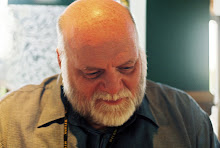Spaces
As a hospice chaplain, I look into the eyes of the dying every day. That gaze into the dark center of each one leaves me to wonder at the process of the leaving of life – the breathing out of energy from the vessel that it animated and the transformation of a living being into a body to born away. There, the eyes are moist and quick with life and here they fix onto something out of sight. Here they flick back to my face and there they look beyond again and again until they become frozen and cloudy.
It fascinates me because the drying of the dying eyes reminds me of the slippery beginnings of life when this same body was squeezed into the world and startled into its state of being eliciting streams of tears from that time to this. What is it that leaves leaving this person a dried husk? Is it just the physics of cellular functioning that ceases in a reversal of living? I want it to be more than that. I hope for my patient’s sake there is more to it than that but when I’m truthful, I want it to be more for myself. It’s my own mortality that I face when I look into those mirrored lenses of the soul. Sometimes I’m afraid that there is merely the cooling of my body and the exchange of the heat of life with the atmosphere when I die. All this learning, all this experience, all the hot flow of living surely cannot just fizzle out like a sparkling pyrotechnic.
Materialistic science says that it is so. There is no more to life than what can be observed. Yet, as I observe the cooling of bodies, I see changes in the space around them. I can observe others moving around the space they once occupied, shifting in and out, filling in here, emptying out there. On the surface of the bereaved family and community, the changes are social and are measurable. Anthropologists and sociologists study the matter constantly measuring the differences between cultures, writing paper after paper on the shifting family systems at and after times of death. But the movement I see speaks to me of deeper changes in the movement of energy and existential vacuum created from the drawing out of a being from its place in time and space.

